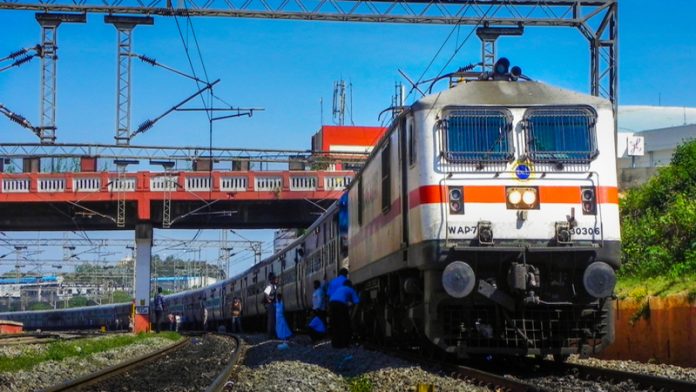This article is written by Dilraj Chouhan and the article has been edited by Khushi Sharma (Trainee Associate, Blog iPleaders).
Table of Contents
Introduction
Every human being is a consumer in one form or the other. Consumer’s expectations of service and goods quality, performance, safety, and reliability have increased since the past times. But this is shattered on door of debacle when the consumer is left in lurch with unsatisfactory services. Thus, the Government of India has brought in various statutes in order to protect customers from such harassment and fraud. Consumer Protection Act is one of them. Since the service sector of India is so vast that it becomes necessary to have an efficient operation of same, and which become only possible when there is efficient Service Provider and Receiver Relationship.
The service sector of transportation is keystone that cannot be overlooked and, in that Railway, as a medium of transport is most prominent and largest public sector service. Thus, deficiency in this sector can be highly detrimental to the economy. Therefore, it is an urgent need to have proper vision regarding rights, redresses mechanism etc. as consumer so that Railway can also expand its Service efficiency along with redressing our grievances. This article presents a deep analysis regarding the protection of Consumer’s Rights in railway services. In this article, Rights one has as railway consumers and deficient services of railways are also discussed.
The idea of Service has expected more prominent significance in present society as a notion of the service have turned into a concept of necessity right now. Railway Service is one of them. Since Indian Railways is acting as milestone for the Indian economy, so it becomes crucial for individual to have knowledge as Railway consumer in terms of their Services. As a major service provider, railways need to ensure that it provide quality of service to its consumers but in various instances, the railway failed to provide such and the concept of consumerism arise. In response to the same, The Railways Act of 1989 was passed but no specific rights to the railway consumer, as such, were provided in the act. There were only a few provisions regarding the carriage of passengers were there but these provisions were not enough to cater to needs of the rights of railway consumers. For the protection of rights as a railway consumer, one has to take recourse of the Consumer Protection Act, 1986. The Railways Act, 1989 with allied rules defines the responsibility of the railway towards its passengers. For deficiency in service passenger has right under Consumer Protection Act, 1986 because under the railway law, no mechanism is available to mitigate the problems faced by the railway consumers. That is why a consumer has to seek recourse of consumer forum in cases of deficient services.
Consumer forum’s jurisdiction towards railway services
Since it is clear fact that even statutory corporations providing a deficient service, can be made liable under the Consumer Protection Act. Furthermore, if one talks about the definition of Service then, As per Section 2(42) of C.P. Act, 2019, “Service” means service of any description which is made available to potential users and includes the provision of facilities in connection with banking, financing, insurance, transport, processing, supply of electrical or other energy, board or lodging or both housing construction, entertainment, amusement or the purveying of news or other information, but does not include the rendering of any service free of charge or under a contract of personal service. So, it is clear that since the term “transport” includes railway transport. So, the person who is availing of the railway services is considered as a “consumer”.
Section 3 of this act provides that the provisions of the Act shall be in addition to and not in derogation of the provisions of any other law for the time being in force. On the above said provisions were giving the powers to the consumer forum to hear the railway consumer disputes which is relating to “deficiency in service”. Furthermore, there are various statutes that have been passed by the Indian Parliament specifically for the Railway department which deals with the liability of Railway authorities like the Railway Act of 1989, Railway Claims Tribunal Act, Workmen compensation (Indian Railways) Act etc.
It is here important to note that in order to decide the jurisdiction of the Consumer Commission or the Railway Tribunal the facts of the case have to be correctly interpreted, else minor changes will roll out jurisdiction from one to another. If one considers the jurisdiction of Consumer Commissions then it is lined up with a path that when a customer buys a train ticket he becomes a consumer so, an incident relating to negligence or deficiency in services brings the case under the Consumer Forum. Whereas on other hand, the cases which are related to accidents due to collusion of trains or specifically untoward incidents fall under the jurisdiction of Railway Tribunal as the reason being that the question is not with respect to services of the railways but the accidents involved. There cannot be any ground that accident occurs due to negligence or deficiency in railway services. Overall, it can be summarized that consumer fora have jurisdiction over railway services.
Possible deficiency in railway services
Deficiency means any fault, imperfection, shortcoming or inadequacy in the quality, nature and manner of performance that is required to be maintained by or under any law or has been undertaken as part of a contract or otherwise. This definition helps us to analyse the problems such as trains being unfathomably late, passengers holding a reserved ticket does not get the assigned seat; long-distance trains not having the basic services like water in the washroom, poor electricity due to lack of maintenance etc. are not any other but the examples of Deficiency on part of Railway authorities. Even there have been incidents where the passengers have lost lives due to the dilapidated & deficient railway Services. So, it becomes crucial to have in and out of these deficiencies and their redressing mechanisms.
Here is a shortlist of possible deficiency in Indian Railway Services:
Loss of Personal luggage of the Passenger:
There is as such no express provision for the loss of luggage under the Railway Act or RCT Act but one can approach under Consumer Act.
CASE: G.M.Eastern Railway vs Smt. Malti Gupta
The state commission held the loss of three suitcases of the Passenger in the train as almost to deficiency in service and the railway was held liable to pay compensation.
2. Cleanness and water facilities:
Again, there is no express provision in the RCT Act so, the consumer can invoke the jurisdiction of the consumer forum to decide his claim.
CASE: South Eastern Railway Vs. Yeshwant Tiwari
Not providing water for cleaning purposes to the reserved compartment passengers is amongst to deficiency in service and, the consumer forum is having the jurisdiction to hear this dispute.
3. Negligence in taking due care:
Railway authorities are liable if they perform an act with negligence such as over-speeding unnecessarily, compartments with squalor, lack of proper maintaining etc.
CASE: Union of India v. Rajiv Kumar Tandon
The complainant was perched by the window and he attempted to lower the window yet because of some deformity, it couldn’t be moved down. As the train was pacing at a quicker speed a piece of concrete flew noticeably all around and struck against the head of the complainant. Thus, he was admitted to the clinic roughly for 15 days and it was held that the Railway Claim tribunal has no jurisdiction. As, for this situation, it is definitely not an “untoward incident”. The complainant was viewed as the consumer via buying the railroad ticket and hence employing the services of the respondent and was granted compensation.
4. Extreme delay in Arrival and departure:
CASE: Union of India v. Kedar Nath Jena and Others
The complainant, an advocate, purchased tickets from Cuttack to Bangalore in order to take his son for treatment there. The Guwahati Express train which was to leave Bangalore at 10.30 p.m. on 09/06/1990 started at 9 a.m. on 10/06/1990. The complainant suffered inconvenience and also incurred huge expenses because he had to hire lodging. The Railways failed to give reasons for the delay. It was held as a ‘deficiency in service’ under the Consumer Protection Act. Each of the complainants was thus awarded ₹ 500/- as compensation.
5. Malpractices by railway in allotting berths:
CASE: Meenakshi Sundaram v. G.M. Southern Railway
In this case, It was found that the Railways superseded the complainant and allotted the reservation to some VIPs. The State Commission held the Railway Department liable for deficient service and awarded Rs. 1000/- and Rs. 300/- to the complainant.
There is as such no end to all the possible deficiencies but all the general deficiencies are covered which are quite common in practice.
Overlapping jurisdictional issues
There is still maybe sometimes the cases of overlapping jurisdictional issues. Consumer forums generally have the jurisdiction to hear the disputes between railway consumers and the railway authorities in respect of “deficiency in service”. Whereas, the railway claims tribunal have jurisdiction regarding accidental claims and untoward incidents. On a broader view, Since Railway Claims Tribunal Act has been enacted after the enactment of the consumer protection Act, thus it is a clear-cut indication that the legislature clearly intended to give special jurisdiction to RCT in order to hear the specific railway disputes. Even, Section 15 of the RCT expressly bar the jurisdiction of civil courts and other courts or authorities. Following are the cases where such overlapping jurisdictional issues are being considered.
- Union of India V. Nathmal Hansaria
In this landmark case, the National Consumer Disputes Redressal Commission in 1995 upheld a state commission order and directed the railways to pay ₹ 2.25 lakh to the parents of a 21-year-old, Kabita Hansaria, who died in 1990 while passing through interconnecting compartments on a long-distance train. The legal heir of Kabita told the commission that the vestibule connecting the compartments were not having safety grills which resulted in this unfortunate incident.
The railways took a different stance and contended that according to the provisions of the Railway Claims Tribunal, the complaint was not tenable before the commission. But the commission made a clear distinction between a train accident and accidental death and observed that Kabita’s death falls under the latter case and the state commission is totally right in pointing out kabita as a consumer.
- Deputy Chief Commercial Manager, Eastern Railways & Anr. V. Dr. K. K. Sharma & Ors.
In this case, the consumer forum held that Consumer Protection Act provides an alternative remedy to a consumer and furthermore Existence of remedies, provided by Sections 13 and 15, of the Railway Claims Tribunal Act, 1987 didn’t evoke the jurisdiction of the consumer courts to decide the question with respect to deficiency of service. It is well-appreciated fact that the consumer courts cannot sub-plant the jurisdiction of the Railway Tribunal or any other judicial or quasi-judicial body, but can supplement the jurisdiction of these bodies in appropriate cases.
- There are some facts of a case that also illustrate the same. In 2011, the national commission ruled in favour of a woman whose husband was run over by a goods train in 2003 while he was crossing tracks at a spot where there was no railway bridge. The commission rejected the railways’ defence that such cases fell under the provisions of the Railway Claims Tribunal Act and that consumer fora did not have jurisdiction.
Conclusion
At last, it can be concluded that the Indian railway should strive to bring a pragmatic shift in its perception of consumers. To curb these problems, consumer protection laws should be framed in such a manner as to augment the rights of consumers. For the effectiveness of such laws, recognition of rights alone is not satisfactory. This has to be done by promoting awareness among the general public about consumer rights. To achieve this end periodic surveys should be conducted to ascertain the level of satisfaction among its consumers. Not only periodic surveys but also improvements for those areas are specifically required which are witnessing heavy lurch. This will not only just act as basic attempts and viable solutions eradicating consumer woes and sufferings, but will also enhance the working efficiency of Railway and aid in the restoration of faith in Railway Services.
References
- Ab Hamid, N. R. (2008). Consumers’ behaviour towards internet technology and Internet marketing tools. International Journal of Communications, 2(3), 195–204.
- Sharma, S. K., & Kumar, A. (2014). A comparative study of Indian and worldwide railways. Int J Mech Eng Robot Res, 1(1), 114–120.
- Rangaraj, N., & Vishnu, B. N. (2002). Node capacity and terminal management on Indian Railways. Invited paper At Vision, 2025.
- Budhkar, A., & Das, S. (2017). Finding trend of advanced ticket booking in Indian railways. Transportation research procedia, 25, 4822–4831
- https://indianrailways.gov.in/railwayboard/uploads/directorate/security/rpf/ Files/law/BareActs/Consumer.doc
- https://blog.ipleaders.in/railways-sector-deficiency-services/amp/
- https://www.lawcolumn.in/consumer-protection-with-respect-to-indianrailways/
LawSikho has created a telegram group for exchanging legal knowledge, referrals, and various opportunities. You can click on this link and join:
https://t.me/joinchat/J_0YrBa4IBSHdpuTfQO_sA
Follow us on Instagram and subscribe to our YouTube channel for more amazing legal content.
 Serato DJ Crack 2025Serato DJ PRO Crack
Serato DJ Crack 2025Serato DJ PRO Crack











 Allow notifications
Allow notifications


